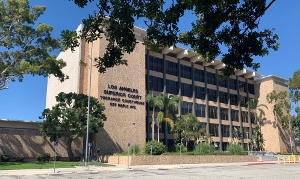We are Greg Hill & Associates. If you or a family member want to learn more about certificates of rehabilitations, we can help you. You or a loved one may have been advised that the only way to regain the right to own a firearm or be relieved of the obligation to register as a sex offender is to have a certificate of rehabilitation under Penal Code § 4852 granted.
This very common advice is only half right. A certificate of rehabilitation, signed by a judge, does relieve one of the obligation to register as a sex offender (as provided by Penal Code § 290.5(a)), but it does not by itself, restore the right to possess a firearm.
A signed certificate of rehabilitation, however, does make one automatically eligible for a Governor’s pardon with federal approval, which is the only way to truly restore the right to own, possess or purchase a firearm (except for those convictions involving a felony involving the use of a dangerous weapon according to Penal Code § 4854).
A signed certificate of rehabilitation also benefits one seeking state licensing for professions such as real estate broker, certified public accountant, etc. (see Penal Code § 4853).
The signed certificate of rehabilitation also serves as an official document to demonstrate a person’s rehabilitation, which could enhance employment opportunities. It allows an ex-felon to serve on a jury and allows certain ex-felons to be considered for appointment as a county probation officer or state parole agent.
A certificate of rehabilitation does not erase the felony conviction or seal the criminal record (Penal Code § 4852.17). It also does not prevent a prosecutor from considering the offense at issue as a prior conviction if the person is later convicted of another offense. It also does not allow, like expungement does in general, to a person to answer “no” on an employment application asking if he or she has a criminal record. It also does not restore the right to vote.
What exactly is a certificate of rehabilitation? It is a judge’s finding (a certification) that someone has become an honest and upstanding member of community, who obeys all laws, but who previously was: 1) convicted of a felony, sentenced to state prison and served time in state prison or county jail under AB109; or 2) someone who was convicted of a felony, but had the conviction expunged, or 3) someone who was convicted of a misdemeanor sex offense requiring registration under Penal Code § 290 and the conviction was expunged.
 Torrance Superior Courthouse
Torrance Superior Courthouse
Not everyone is eligible for a certificate of rehabilitation. One cannot be on probation or parole when applying and depending upon the conviction, one must present satisfactory evidence of residence in California for five years plus additional time for certain offenses (i.e. four more years for murder, aggravated kidnapping, train wrecking, assault likely to cause great bodily injury, acts involving explosive devices, or other offenses involving a life sentence and certain child pornography crimes, as well as certain indecent exposure crimes).
However, one is not eligible for a certificate of rehabilitation if one is in the military or on mandatory life parole. Also someone is ineligible if he or she went back to prison after the conviction at issue. Other crimes that are ineligible for a certificate of rehabilitation are:
- Penal Code § 286(c) – Sodomy with a a person who is a minor 14 years of age of older against the victim’s will by means of force, violence, duress, menace or fear of injury;
- Penal Code § 288 – Lewd or lascivious act;
- Penal Code § 288a(c)– Oral copulation with a minor 14 years old or older when the act is accomplished by force, violence, duress, menace or fear of injury;
- Penal Code § 288.5 – Continuous sexual abuse of a child;
- Penal Code § 289(j) – Forcible sexual penetration of a person under age 14 by a person ten years or more older;
- Penal Code §§ 207, 207(b) or 208(d) - Kidnapping with the intent to commit rape, sodomy, lewd acts with a minor, oral copulation, or sexual penetration with an object;
- Penal Code §§ 220(a), 220(b), 220/261, 220/261(b) - Assault with intent to commit a sex crime;
- Penal Code § 243.4 - Felony sexual battery;
- Penal Code §§ 261(h) or 266(i) - Felony pimping (261(h)) or pandering (266(i));
- Penal Code § 236.1 - Human trafficking of a child;
- Penal Code § 288.7(a) or (b) - Sexual act with a child under ten; or
- Penal Code § 647.6 - Annoying or molesting a child under 18.
In Los Angeles County, all such applications are filed in the downtown Clara Shortridge Foltz (CCB) courthouse, not the courthouse within Los Angeles County where the conviction took place (unless it was CCB).
If you or a family member would like to learn more about certificates of rehabilitation, please call us today for a free 45 minute consultation. You will receive top quality representation for a reasonable fee. (310) 782-2500.
Contact us. 
 Torrance Superior Courthouse
Torrance Superior Courthouse